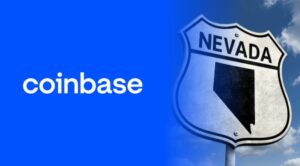Key Moments:
- A legal specialist indicated that only Congress, the Supreme Court, or coordinated state rulings could clarify the future of prediction markets.
- Industry uncertainty has favored prediction market operator Kalshi as regulatory outcomes remain unsettled.
- Active litigation has posed challenges for Kalshi in both California and Massachusetts, with key court hearings scheduled.
Calls for Definite Regulatory Guidance
Legal ambiguity continues to surround prediction markets in the United States, and participants are seeking firm guidance from either federal institutions or state authorities. During a call with Jefferies analysts, sports betting legal expert Daniel Wallach emphasized that only action from Congress, the Supreme Court, or coordinated state rulings will bring needed clarity to this market.
Wallach outlined the central legal question as resting on Congressional intent behind the establishment of the Commodities Futures Trading Commission (CFTC) and its relevant legislation, notably the Commodity Exchange Act (CEA). The definition of a “swap” in the CEA hinges on commercial economic consequences, which, if broadly interpreted, could encompass sports events and potentially favor operators like Kalshi.
Legal Landscape and Market Implications
Kalshi, along with other prediction market businesses, operates under CFTC regulation at the federal level. Critics claim that Kalshi utilizes a legal loophole to provide yes/no contracts on sports outcomes, resembling widespread sports betting available across the country. Kalshi has maintained it is not a sportsbook and cites federal preemption as the basis for its nationwide derivative offerings.
Gaming enterprises such as DraftKings (NASDAQ: DKNG) and Flutter Entertainment (NYSE: FLUT), the parent of FanDuel, would benefit from regulatory certainty. Clear-cut rules—either from Congress explicitly defining the legal status of sports event contracts, judicial outcomes from the Supreme Court, or uniform state-level decisions—could resolve current uncertainties.
However, Jefferies analyst David Katz highlighted that Wallach does not anticipate a swift resolution. He pointed out that it often takes significant time for such cases to progress through the federal courts, and there is little indication that Congress will address the prediction markets question soon.
Katz wrote: “To this point, were sports events to be legalized swaps, DKNG and FLUT could enter the market productively vs. disrupter Kalshi, and if sports events were prohibited, DKNG and FLUT would continue as is.”
Litigation in Major States: The Road Ahead
Kalshi is currently facing litigation in a number of states, with especially significant developments in California and Massachusetts. In Massachusetts, the company is a defendant in a case initiated by Attorney General Joy Campbell (D). Massachusetts Superior Court Judge Christopher K. Barry-Smith has set a September 22 hearing date concerning a preliminary injunction sought by Campbell.
Meanwhile, in California, Kalshi’s operation has generated conflict with tribal gaming groups that possess exclusive gambling agreements with the state. As tribal operators hold exclusive rights to sports wagering, the outcome of any legal actions initiated against prediction market firms could carry significant weight in shaping the market.
Major Markets for Kalshi: State-Level Disputes
| State | Key Legal Issue | Upcoming Event |
|---|---|---|
| Massachusetts | Litigation involving Attorney General Joy Campbell | Preliminary injunction hearing scheduled for September 22 |
| California | Conflicts with tribal gaming exclusivity | Potential pursuit of injunctions by tribal interests |
- Author


